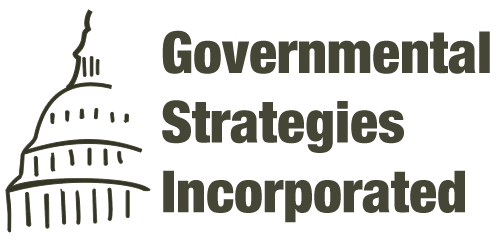|
Federal affairs professionals, whether working in industry or in the interests of other stakeholders, operate in a dynamic and unpredictable environment in which coalitions form and dissolve overnight, and issues that may seem completely unrelated may have dramatic impacts on each other. The continuous uncertainty and ephemeral nature of political coalitions means that we must be constantly vigilant to threats and opportunities that present themselves. One of the cornerstones of a successful government affairs program is the day-to-day management of issues important to a company. To provide this service, GSI interacts directly with policymakers to advocate additions to, or modification of, laws and regulations affecting the environmental, safety and economic regulation, tax, human resources, corporate governance and other aspects of our clients’ operations. However, external strengths are meaningless without an effective internal dialogue ensuring that our strategies and implementation methodologies are consistent with our clients goals and values. |
As such, our concept of issue management encompasses the entire federal affairs programs of our clients from internal policy development through strategy and implementation. As a vital adjunct to these day-to-day activities, we also develop and implement strategies for maintaining and enhancing relationships that build political capital. Issue management ties together the internal and external roles that we serve and provides a forum for prioritizing and allocating scarce and valuable client resources to achieving organizational objectives.
Thus, for us, issue management is a multi-dimensional effort that involves identification of key issues with clients, developing a strategy to achieve the desired outcome and executing the agreed upon program. Throughout this process, which can be as short as a few weeks to extensive, multi-year efforts, we strive continuously to communicate with clients to ensure that we stay aligned with their priorities and to provide updates and ongoing analysis of developments in their issues.
Our philosophy for effective long-term government relations programs involves three basic methods for creating and preserving value to our clients:
- Maintain and enhance enabling relationships. In the hyper-competitive market for ideas that is the Washington policy apparatus, only the best and strongest ideas have a chance to succeed. Because of that competitiveness, small advantages can pay large dividends. Developing strong relationships with clients’ delegations and relevant committee staff creates the credibility that can create that advantage. However, these relationships must be actively nurtured on an ongoing basis. We work tirelessly to establish and maintain trust-based relationships with policy makers, especially those who represent areas in which our clients have an interest.
- Seek and pursue opportunities for policy gains. Opportunities for policy gains present themselves in different ways. By working proactively to shape policy in trade associations, ad hoc groups and the policy community, we do our part to become part of the policy apparatus that defines what is or is not possible in political terms.
- Identify and prevent adverse policy concepts. Every day, ideas and concepts that are inimical to our clients’ interests are presented to Congress by well-meaning or malevolent individuals and organizations without regard for the economic, environmental or human costs that they might impose. One of our key roles is to identify such ideas so that they can be planned against and prevented from reaching fruition. We work constantly with industry peers, federal officials, trade groups and others to ensure a fair and balanced federal agenda is considered.

